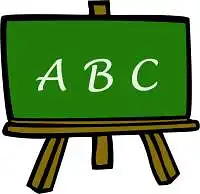Vocabulary acquisition in young learners
As a former Comenius language assistant in Ireland, Tralee Educate Together N. S. and currently a student of Palacky University in Olomouc, Czech Republic, I am writing a thesis about vocabulary acquisition in young learners. I would like to collect some more data to make a clearer picture of how the language support works in other schools or other English-speaking countries. Everybody's firsthand experience opinion will be very valuable to me, either if it is a teacher's, trainee teacher's, or parent's one.

I am a...

I have firsthand experience with teaching English as a second/foreign language
Please choose the answer which best describes your attitude towards the following statements
If you have firsthand experience with TEFL, please answer which methods you use/used when teaching new vocabulary to EFL students
Please mark the following aspects/characteristics according to usefulness or importance when teaching English to young learners
Do you use or know anything about frequency word lists such as Dolch or Thorndike's list? What do you like/dislike most about them? How do you use them?
- i don't know.
- A
- no
- no
- say it.
- simple
- excellent goods from you, man. how to improve your english level? | | global understanding, teaching and learning i have understood your stuff and you're just too magnificent. i really like what you have acquired here, certainly like what you are stating and the way in which you say it. you make it entertaining and you still manage to keep it sensible. i can't wait to read much more from you. this is really tremendous information on how to improve your english level? | | global understanding, teaching and learning.
- there are other ways to improve our memory too. like eating the right nutrition (brain food). some of these are: vitamin c is an antioxidant and it prevents damage leading to different types of diseases. vitamin b can improve our thinking ability. vitamin e can help preserve brain function and protect nerve-cell degeneration. it is also one of the important antioxidants that our brain needs. carbohydrates are good for the brain because they contain glucose, which is known as brain fuel. it provides energy for us to concentrate, remember, learn, and engage in other activities. then there's protein. amino acids are obtained from protein. neurotransmitters need those amino acids to relay messages from one nerve cell to another. a high-protein meal can make us feel energized because it increases the tyrosine levels in our brain and blood. tyrosine and tryptophan are some of the different types of amino acids. and because tyrosine can make us feel more energized, our brain can concentrate better.
Do you use or know anything about graded reader's books? What do you like/dislike most about them? How do you use them?

- i like them, but they are not the only complete source for teaching.
- i don't know.
- A
- yes, i use them according to the grade. they are reasonably good but not exhaustive.
- no
- in civil still
- so happy
- excellent goods from you, man. how to improve your english level? | global understanding, teaching and learning i have understood your stuff and you're just too magnificent. i really like what you have acquired here, certainly like what you are stating and the way in which you say it. you make it entertaining and you still manage to keep it sensible. i can't wait to read much more from you. this is really tremendous information on how to improve your english level. | global understanding, teaching and learning.
- there are other ways to improve our memory too. like eating the right nutrition (brain food). some of these are: vitamin c is an antioxidant and it prevents damage leading to different types of diseases. vitamin b can improve our thinking ability. vitamin e can help preserve brain function and protect nerve-cell degeneration. it is also one of the important antioxidants that our brain needs. carbohydrates are good for the brain because they contain glucose, which is known as brain fuel. it provides energy for us to concentrate, remember, learn, and engage in other activities. then there's your protein. amino acids are obtained from protein. neurotransmitters need those amino acids to relay messages from one nerve cell to another. a high-protein meal can make us feel energized because it increases the tyrosine levels in our brain and blood. tyrosine and tryptophan are some of the different types of amino acids. and because tyrosine can make us feel more energized, our brain can concentrate better.
Please write the full name of the country you teach English/your child learns English in

- india
- india
- A
- india
- india
- india
- murthaza iqbal
- india
- india
- xopsycsbkmot